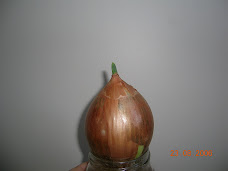
The outstanding difference between English and Korean is word order. I think this is one of main reasons that Koreans cannot learn English easily.
In English, ther word order of transitive verb is subject, verb, and object(preposition phrase
would be optional), while in Korean, the word order is subject, (prepositional phrase),
object, and verb. This totally different word order makes Korean students confused because the structure becomes another obstacle besides vocabulary.
* Example
English> " I study English in Iowa city. "
(Subject) (verb) (object) (prepositional phrase)
Korean> "나는 아이오와에서 영어를 공부합니다. "
(Subject) (prepositional phrase) (object) (verb)
In addition, there is a few article usage in Korean compared to English. So
most Korean students have a big trouble to use articles not only in spoken English,
but also written one. I still feel difficult when I use articles such as 'a', 'an', and 'the'.Organizing structure(subject, next verb, and then object or predicative) is not easy in my head before I speak English, but it is interesting and at the same time challenging.

4 comments:
The sentence structure of Turkish is also similar to Korean. First subject, and at the end verb, and the other things between subject and verb. Maybe I'd better to study Korean huh!
Interesting explanation! Your native language is a whole different way of thinking! You are doing a great job with your English--so keep up the good work! :)
I noticed your comment to Selcuk, and I find that quite interesting. I wonder about the history of those people, and how they are connected to one another. It reminds us how similar we are, even though we seem different on the surface. :) The topic for this week (10/21) is similar to what you've done already... Maybe you could choose another aspect of the language (like the spelling system of Korean!). :)
I will try to write the examle sentence in roman letters: naneun iowa-eseo yeongeo-reul kongbuhamnida. So, why to we say "eseo" instead of just "e" in that case?
Post a Comment